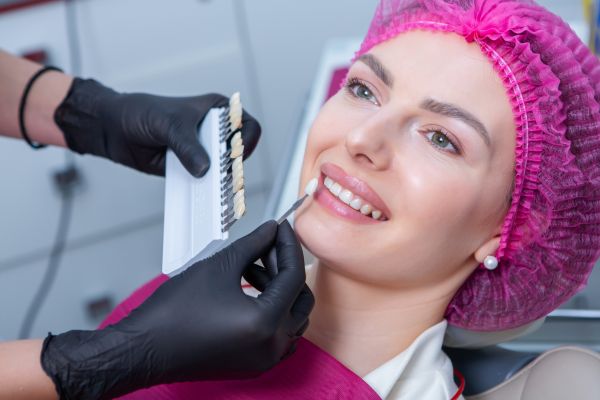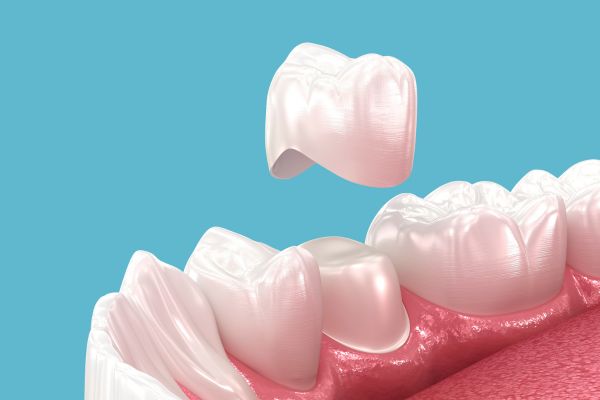Notifications

9 minutes, 21 seconds
-21 Views 0 Comments 0 Likes 0 Reviews

Teeth staining is something almost everyone experiences at some point. Whether it's the first cup of coffee in the morning, the glass of red wine during dinner, or simply the effects of aging, discoloration can become a nuisance. But why do our teeth get stained in the first place? In this blog, we’ll break down the main causes of tooth staining, look at the different types of stains, and explore what you can do to prevent or reduce them. After all, a bright smile is often a healthy smile.
Before delving into what causes tooth stains, it's helpful to understand the different types of staining that can occur. Broadly, tooth stains fall into two categories: extrinsic and intrinsic. If you're concerned about staining, a dentist in Shrewsbury can help clarify the differences and recommend treatments tailored to your specific needs.

When tannins from these beverages accumulate on your teeth, they can discolor them.
Red wine can leave obvious stains on your enamel due to its strong color.
Smoking and chewing tobacco can leave your teeth with brown or yellow stains.
Foods like curry, soy sauce, blackberries, and blueberries can leave pigment on your teeth.
These stains can usually be removed with regular brushing and professional cleaning.
The dentin, the tooth's inner structure, is where intrinsic stains appear.These stains are usually more stubborn and harder to remove, as they are embedded deep in the tooth.
Aging: As you age, your enamel naturally thins, allowing the yellowish dentin underneath to show through more.
Medications: Some antibiotics, like tetracycline, can cause staining when taken during childhood or pregnancy.
Excessive Fluoride: Overexposure to fluoride, especially in children, can lead to a condition known as dental fluorosis, which causes discolouration of the teeth.
Genetics: Some people naturally have thinner enamel, which makes their teeth more prone to staining.
Now that we know the types of stains, let's look at what actually causes tooth discolouration.
As mentioned earlier, certain foods and drinks can cause both extrinsic and intrinsic stains. Some foods and beverages are particularly known for their staining power due to their acidity and ability to cling to the tooth surface. Here are a few examples:
Coffee and Tea: These beverages contain tannins, which are plant-based compounds that can stick to the surface of your teeth and cause stains. Coffee and tea are among the most common culprits for tooth staining, with regular consumption exacerbating the problem.
Red Wine: Wine, especially red wine, is acidic and contains natural pigments that can discolour teeth over time. It also has tannins, making it particularly effective at causing staining.
Colas and Soft Drinks: The combination of acidity and colour additives in soda can contribute to enamel erosion and staining.
Fruit Juices: Dark-coloured juices, like pomegranate and cranberry juice, can lead to staining as well.
One of the main reasons of tooth discoloration is smoking or chewing tobacco. Nicotine and tar are absorbed into the enamel, leaving behind a yellow or brownish tint that can be difficult to remove. These stains tend to build up over time, making tobacco use a long-term cause of tooth discolouration.
One of the simplest causes of tooth staining is inadequate oral hygiene. If plaque and tartar are allowed to accumulate on your teeth, they can trap staining substances, which will lead to discolouration. Not brushing your teeth regularly or missing areas like the back molars can allow these stains to set in. It’s crucial to brush at least twice a day and floss regularly to maintain clean teeth and reduce the risk of staining.
Some antibiotics, like tetracycline, have been known to cause stains on teeth if taken during the developmental years. Other medications, such as antihistamines, antipsychotics, and blood pressure medications, may also contribute to discolouration. It’s important to discuss any medication side effects with your doctor or dentist, particularly if you're concerned about staining. For those seeking a brighter smile, teeth whitening Shrewsbury options can help address staining caused by medications.

Just like how some people are more prone to other health issues, some are more prone to tooth staining due to their genetics. People with naturally thin enamel are at a higher risk of staining because their dentin is more visible. As you age, your enamel also wears down, which can cause teeth to appear more yellow.
While some causes of tooth discolouration are out of your control, there are plenty of ways to reduce or prevent staining altogether.
One of the best ways to prevent tooth staining is to maintain excellent oral hygiene. Brush your teeth at least twice a day using fluoride toothpaste, and don’t forget to floss daily. This will help prevent plaque buildup and remove any food particles or substances that might cause stains.
If you can’t brush your teeth right away, rinsing your mouth with water after consuming food or drinks that can stain your teeth, such as coffee or red wine, can help reduce the likelihood of staining. It helps wash away any substances before they can settle into your enamel.
When drinking staining beverages, like soda or coffee, using a straw can minimize contact between the liquid and your teeth, reducing the risk of staining.
Visiting a dentist for regular check-ups and professional cleanings is another effective way to keep stains at bay. A Dentist in Shrewsbury can remove surface-level stains that are difficult to get rid of with regular brushing, leaving your teeth looking brighter.
If you're already dealing with tooth staining, teeth whitening treatments can be an effective solution. There are various over-the-counter options available, but professional treatments tend to yield quicker and more noticeable results. For those living in or near Shrewsbury, seeking a Teeth Whitening Shrewsbury specialist can help you achieve the smile you’ve always wanted.
Tooth staining is a common issue caused by a variety of factors, from food and drink to lifestyle habits like smoking and even genetics. While some causes are unavoidable, maintaining good oral hygiene, using teeth-whitening treatments, and limiting your consumption of staining foods can go a long way in keeping your smile looking bright. If you're looking for professional help, the team at EDS can provide expert advice and treatments to help keep your teeth in top condition.

